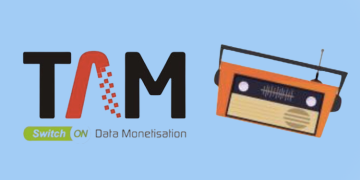The rapid pace at which businesses are adopting emerging tech, and the even faster pace at which technology is advancing, makes it imperative to partake in continuous learning to stay abreast of industry developments. As job roles evolve, it becomes necessary to keep unlearning and relearning oneself to stay relevant, and consequently, employable. The pandemic has only driven home the importance of upskilling, with how it has accelerated digital integration and transformed the very nature of work.
This has led to the burgeoning of edtech businesses that offer a host of courses and programmes to learners from diverse backgrounds, catering to the various demands for upskilling and career advancement. E-learning platforms today offer a whole range of avenues for professionals and students to make the best use of their time and acquire new skills.
But this segment is currently very cluttered and highly competitive, as there are several players in the online training space. As such, it becomes incredibly challenging to establish one’s brand voice and ensure that your offering is conveyed accurately to the consumer. There is seemingly an endless amount of free content that is accessible at any given time, and it is becoming more and more challenging to stand out and grab the consumer’s attention. Since generating content to be engaging, unique and value-adding to the consumer is becoming an increasingly complex problem to address, ed-tech players are embracing a new wave of trends to help them stand out amid the clutter.
Here are some prevalent trends in the online learning space:
Cohort-based courses
Cohort-based courses (CBCs) are interactive online courses where students join an online course together and then move through it at the same pace. It provides an interactive, immersive experience for students, as members of the course share their understanding and application of the course material as they go. Since everything is virtual and digitally enabled, it is malleable. It is like participating in a college discussion led by experts, with no geographical boundaries or hierarchies — as opposed to watching a random static video. Many leading organisations such as Wipro are also exploring this in partnership with ed-tech players to allow their employees to upskill collectively.
Community Engagement
Given the growing challenge of making one’s brand voice heard and establishing brand recall in the consumer’s mind, many edtech players have undertaken the strategic exercise of engaging with their audience in a more targeted manner. To ensure that the correct messaging is conveyed to the end customer, many companies in the space have reached out to relevant communities or build their own. They aim to develop a network by communicating directly with potential users. Fostering these direct relationships not only conveys the brand message in the best possible way to the target audience but also strengthens the brand community and fosters advocacy in the long run. Companies are exploring various avenues for connecting with their target audiences, such as Mattermost, Whatsapp, Discord and other social platforms.
Personalisation
Today, online programs and courses offer a vast array of content that can be readily consumed via apps and browsers on various devices. To ensure user engagement and augmented experience, edtech players use AI-led tools to map customer journeys and provide hyper-personalised solutions. When large volumes of data are generated, companies that can analyse, process and leverage the information stand to gain the upper hand over other players. For example, customised recommendations can be built-in based on user data, which helps optimise course suggestions, thus enabling learners to choose from more relevant courses.
Gamification
Gamification is yet another way edtech players are looking at engaging with customers towards enhancing their overall learning experience. Augmented reality (AR), virtual reality (VR), and mixed reality (MR) are being used to engage with learners and stimulate an immersive learning experience. Edtech platforms are increasingly moving towards this and offering interactive pedagogies that help engage with students at a deeper level.
Digital marketing campaigns
Over the last year, many edtech companies focused on getting brand ambassadors on board and running star-studded digital marketing campaigns that included engaging with influencers or even digital films. However, as most upskilling programs target a specific and narrow audience that is well-informed and part of the decision-making process, not many brands have built a niche through such ATL approaches. Instead, some brands have found immense success through unique tactical strategies, while others, through BTL and direct marketing, have effectively built strong recall amongst their target audience.
In summation, while the pandemic has propelled the edtech space at an accelerated pace, it has also compelled players to reconsider their operational model. There is increased focus on new technologies that can be leveraged to drive lasting engagement, enhance overall engagement and user experience. Even as many players work to offer better tools and resources than ever before, there remains no shortage of opportunities to build a brand niche in this space, as it continues to evolve and breach new horizons with the changing flux of industry and consumer demands.
This article is authored by Abhimanyu Saxena, Co-Founder, Scaler and InterviewBit.
















